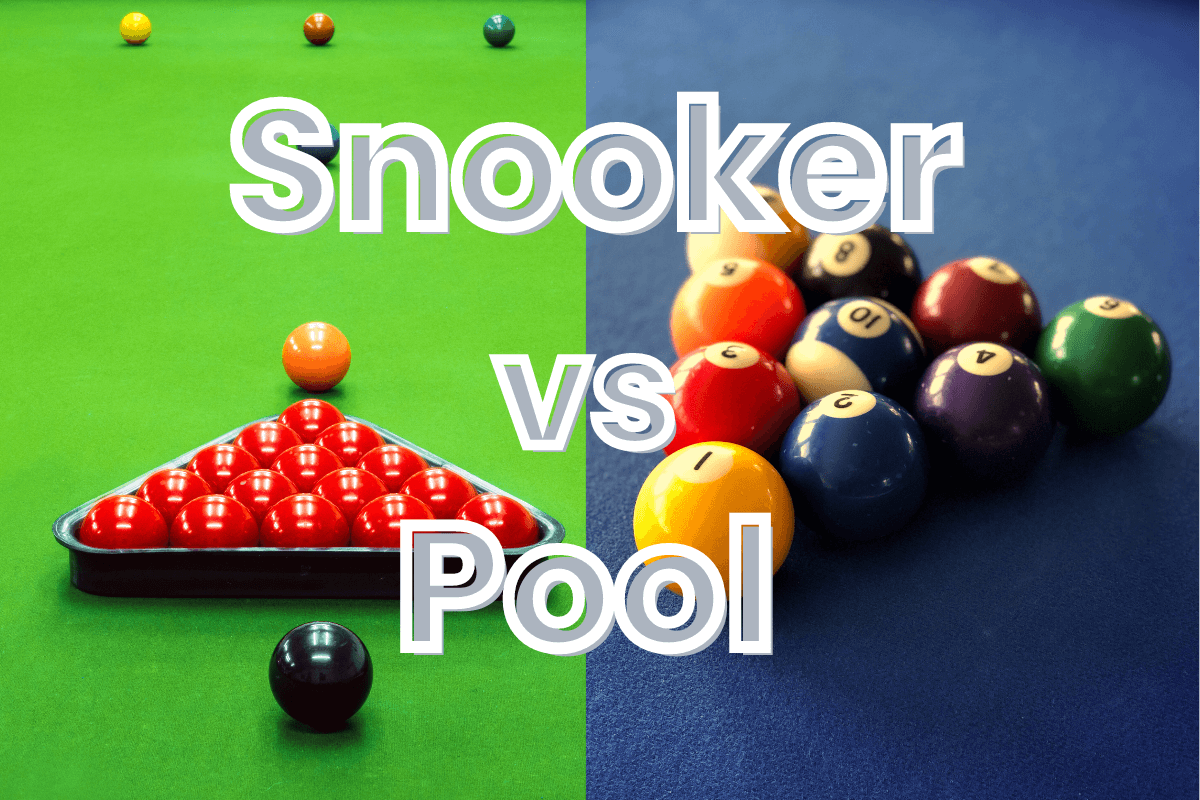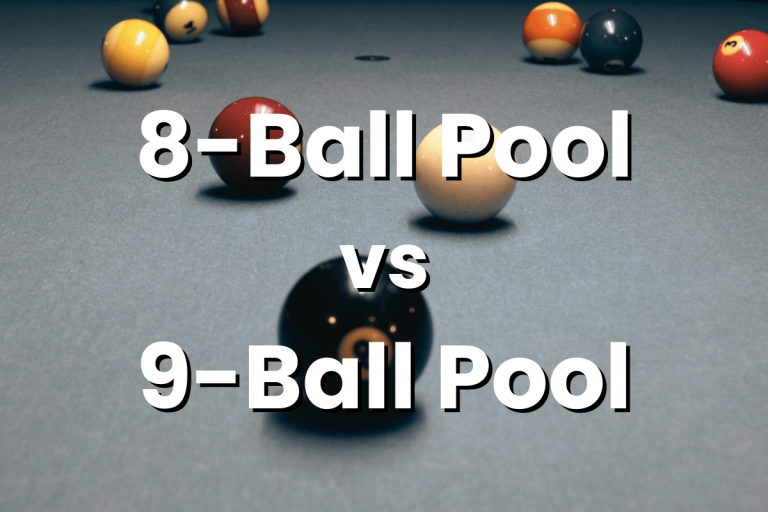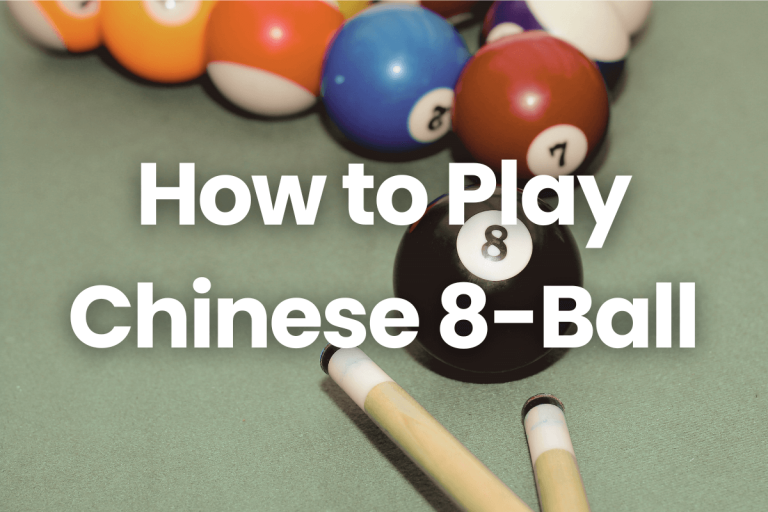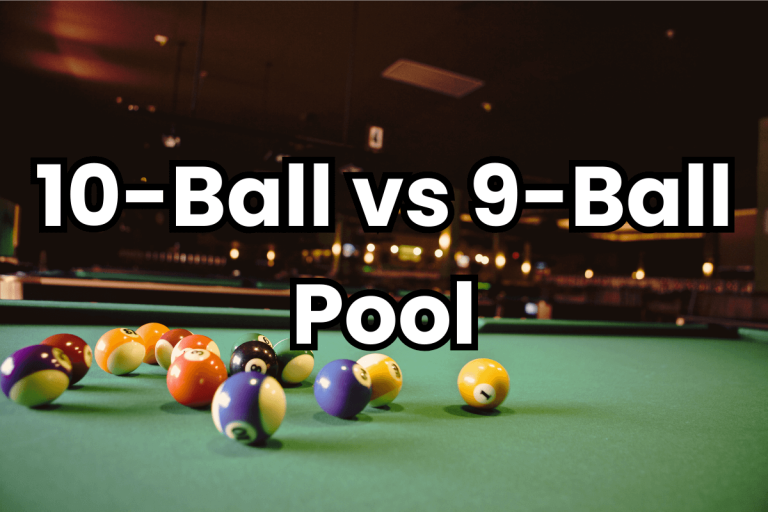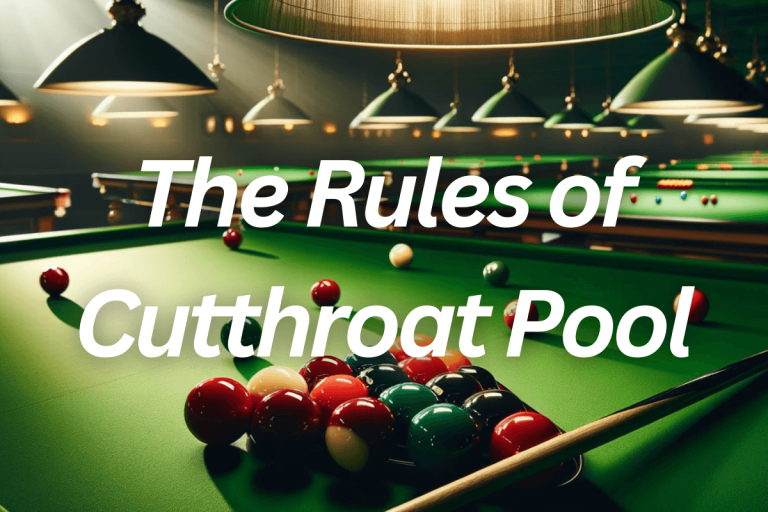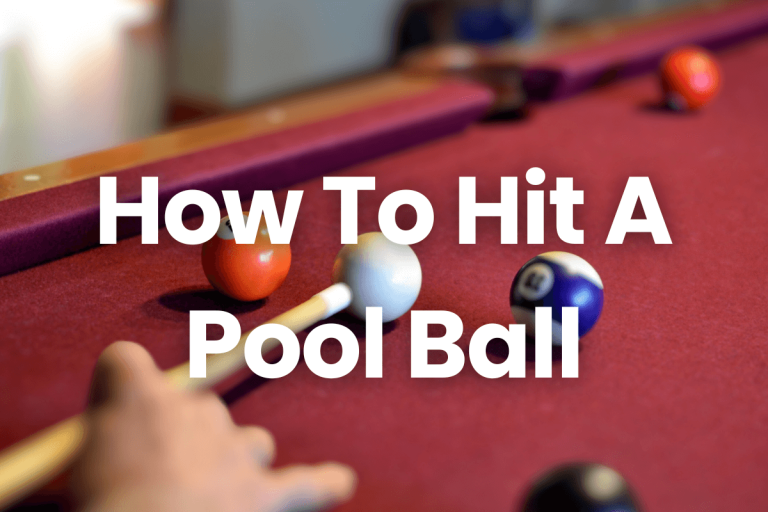Snooker vs Pool | Unveiling the Thrilling Differences & Winning Tips (2024)
In cue sports, Snooker and Pool stand out as two captivating games, each with its own rules and nuances. Snooker, originating in the 19th century, involves strategic potting and complex scoring. In contrast, Pool, with its diverse variations, offers a more accessible and social experience. Understanding the distinctions between these games is crucial for enthusiasts and casual players alike. This introduction sets the stage for a journey into the unique characteristics, histories, and cultural impacts of Snooker and Pool, unraveling the excitement behind each cue and ball.
Snooker vs Pool Difference
Historical Evolution
Origins of Snooker and Pool
Snooker: Snooker’s origins trace back to the late 19th century in British colonial India. Initially, it was a spin-off of Pyramid Pool, played by British army officers. The term “snooker” itself refers to inexperienced military personnel.
Pool: The pool has a diverse history, with various cue sports contributing to its evolution. It emerged in different forms across Europe, including English Billiards. The term “pool” likely stems from the phrase “poolrooms” where bets were placed.
Evolution into Modern Games
Snooker: Snooker gained popularity in England and underwent rule refinements. The standardized version emerged in the early 20th century, with the World Snooker Championship inaugurated in 1927.
Pool: The evolution of the pool involved the development of different variations such as eight-ball, nine-ball, and straight pool. The Billiard Congress of America (BCA) was established in 1948, contributing to the standardization of pool rules.
Both games have transformed significantly from their early iterations, becoming globally recognized and enjoyed, each with unique characteristics and a fan base.
Equipment and Setup
Snooker: Table Dimensions, Ball Sizes, and Cue Specifics
Table Dimensions: Snooker tables are larger, typically 12 feet by 6 feet, providing ample playing space for the 21 colored balls.
Ball Sizes: Snooker balls come in various sizes, with the white cue ball being the smallest. The 21 colored balls are arranged in a specific triangular formation.
Cue Specifics: Snooker cues are typically longer and have a smaller tip, allowing for precise control and finesse in potting balls.
Pool: Differences in Table Size, Ball, and Cue
Table Size: Pool tables come in various sizes, with the most common being 7 feet, 8 feet, and 9 feet. The size influences the difficulty and style of play.
Ball and Cue Differences: The Pool uses 16 balls, with the most popular version being eight-ball. The cue ball is larger than in snooker. Pool cues are generally shorter and have a larger tip, facilitating power shots.
Comparison of Equipment Used in Both Games
Table Cloth:
- Snooker tables have finer cloth, allowing for smoother ball movement and precision.
- Pool tables may have a coarser cloth, facilitating control in a faster-paced game.
Pockets:
- Snooker pockets are narrower, demanding precise shots.
- Pool pockets are wider, accommodating the larger balls and encouraging a variety of shot types.
Rules and Objectives
Snooker: Basic Rules, Scoring System, and Game Objectives
- Basic Rules:
- Players take turns to pot balls in a specific order, starting with the red balls followed by the colored ones.
- Fouls result in point deductions or free shots for the opponent.
- Scoring System:
- Points are awarded based on the color of the potted balls, with red balls earning one point and colored balls varying.
- Maximum break involves potting all balls for a substantial score.
- Game Objectives:
- The primary objective is to score more points than the opponent.
- Players strategize to control the table, set up break opportunities, and maximize points.
Pool: Variations of Pool Games, Standard Rules, and Objectives
- Variations of Pool Games:
- Eight-ball, nine-ball, and straight pool are popular variations with distinct rules.
- Eight-ball involves potting either solids or stripes and then the eight-ball to win.
- Standard Rules:
- Each variation has specific rules regarding potting sequences, fouls, and winning conditions.
- Fouls may result in the opponent gaining an advantage.
- Objectives:
- Objectives vary based on the pool variation played.
- Winning typically involves potting a predetermined set of balls or the crucial game-ending ball.
Key Differences in Gameplay and Strategies
Potting Sequence:
- Snooker follows a predetermined sequence, enhancing strategic planning.
- Pool variations allow for different potting sequences, requiring adaptability.
Game Dynamics:
- Snooker is methodical, with players focusing on positional play and safety shots.
- Pool can be dynamic, involving quick decision-making and adaptability.
Playing Tips and Strategies
Expert Tips for Improving at Snooker
- Master Cue Ball Control:
- Focus on precise control of the cue ball to enhance positional play.
- Practice spin and stun shots to navigate around the table effectively.
- Strategic Shot Selection:
- Develop a keen understanding of when to play aggressively and when to opt for safety shots.
- Plan sequences of shots to maximize break-building opportunities.
- Consistent Practice:
- Regularly practice potting balls, focusing on building consistency in your technique.
- Work on both offensive and defensive aspects of the game.
Winning Strategies for Pool
- Pattern Recognition:
- Develop the ability to recognize ball patterns on the table.
- Plan your shots strategically to clear balls efficiently and set up for the game-winning shot.
- Master Banking and Kicking:
- Hone your skills in banking balls off cushions and executing kick shots.
- These techniques can provide crucial advantages, especially in tight situations.
- Control the Tempo:
- Learn to control the pace of the game based on the situation.
- Adjust your playing style to capitalize on your opponent’s weaknesses.
Conclusion
Snooker and Pool, though rooted in cue sports, diverge in gameplay intricacies. Snooker prioritizes precision and strategic finesse, contrasting with Pool’s adaptability and diverse rule sets. Despite distinctions, both offer engaging challenges. Encouraging exploration of both games enables enthusiasts to appreciate the nuanced joys each brings. Whether captivated by Snooker’s precision or Pool’s dynamism, embracing both enriches the cue sports experience, unveiling a broader spectrum of skills and strategies for players to master and enjoy.
FAQs
Which game is more challenging, Snooker, or Pool?
The level of challenge depends on personal preferences. Snooker demands precision, while Pool offers dynamic and diverse gameplay.
Can skills in Snooker be transferred to playing Pool and vice versa?
Yes, foundational skills like cue ball control are transferable, but adapting to the nuances of each game is essential.
What is the significance of different colored balls in Snooker?
In Snooker, different colored balls have specific point values and must be potted in a particular sequence to score points, with red balls worth one point each, and the colors (yellow to black) worth between two and seven points. This variety adds strategic depth to the game, requiring precise shot selection and positioning.
Are there international championships for both Snooker and Pool?
Yes, Snooker has prestigious championships like the World Snooker Championship, and Pool has various international tournaments.
How can beginners improve their skills in Snooker and Pool?
Practice regularly, focus on fundamental skills, and seek guidance from experienced players or coaches.
Are there specific rules for fouls in Pool, and how are they penalized?
Each variation of Pool has its own set of rules for fouls, and penalties may include loss of turn or ball in hand for the opponent.

